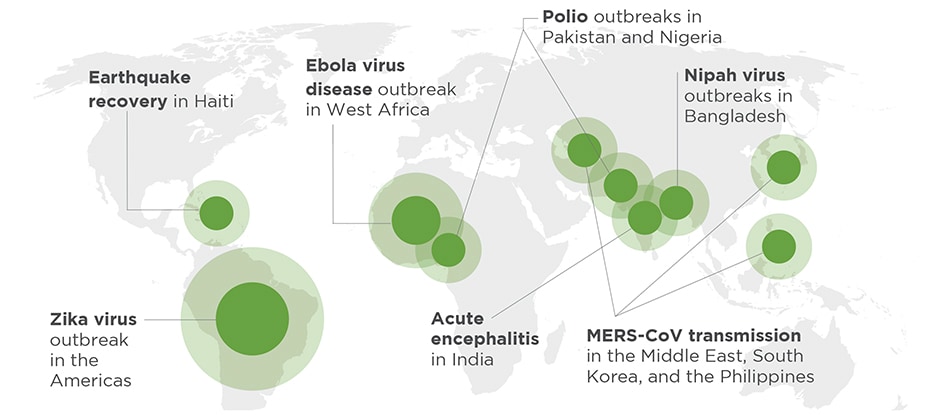
Developing Disease Detective Leaders Across the Globe
Every country needs an effective public health workforce to improve its ability to protect its citizens and rapidly detect and effectively respond to health threats and disease outbreaks.
Since 1980, CDC has helped train more than 16,000 disease detectives in over 70 countries through its flagship global Field Epidemiology Training Program (FETP). FETPs expand CDC’s reach by training public health professionals to investigate and respond to disease outbreaks and other health threats. Through these programs, countries help fulfill the International Health Regulations (IHR) requirements for disease surveillance and response, and strengthen their capacity: conducting surveillance, analyzing data, and making sound evidence-based decisions. FETPs also work to address the increasingly important burden of noncommunicable diseases.
FETP graduates are CDC’s “boots on the ground” and play a critical role in ensuring global health security. They do this by strengthening the public health workforce and expanding regional and global disease detection networks available during crises. For example, FETP graduates have played key roles in responding to major health threats, including:

For nearly 40 years, CDC has supported the development of FETPs and professional disease surveillance and response networks such as the Training Programs in Epidemiology and Public Health Interventions Network (TEPHINET) and the African Field Epidemiology Network (AFENET). In addition to building the public health workforce, these programs and networks have helped FETP graduates stay connected while they guide and mentor the next generation of public health leaders. The FETP initiative continues to evolve and has become a sustainable part of global health security and IHR compliance.
A few FETP graduates, now in public health leadership positions, have shared their own thoughts about the program and their personal experiences.


































No hay comentarios:
Publicar un comentario